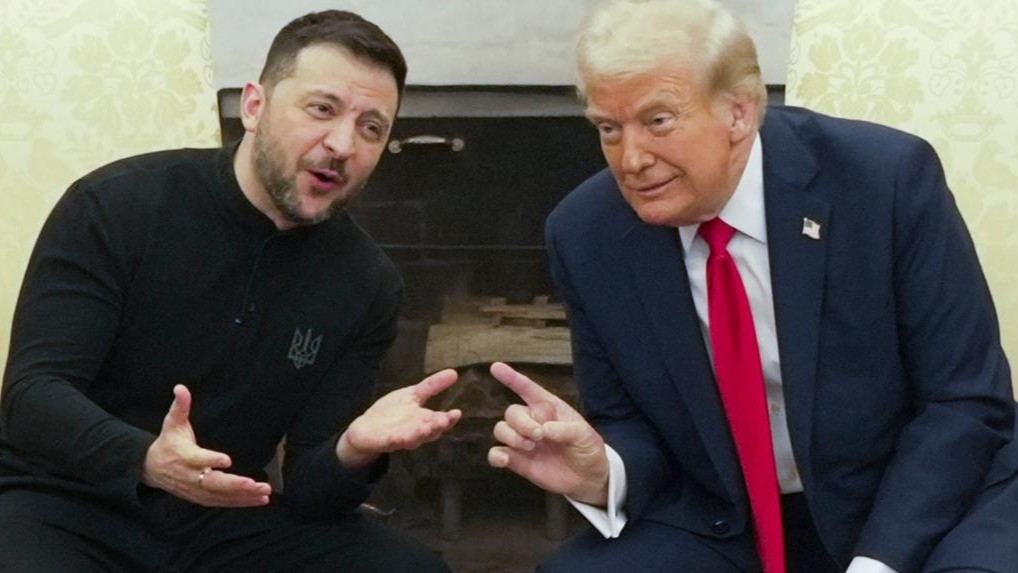The Trump-Zelensky Negotiation: A Tactical Analysis

The conversation between Donald Trump and Volodymyr Zelensky was a textbook example of a power-imbalanced negotiation. This is not a discussion of morals, politics, or geopolitics. Instead, let’s examine it purely through the lens of negotiation strategy.
Context: The Power Imbalance
At the time of their conversation, Ukraine was in a position of weakness. Zelensky needed U.S. support to maintain resistance against Russia while simultaneously seeking leverage in negotiations for a peace treaty. The challenge? Trump’s worldview does not align with Ukraine’s framing of the situation. While Zelensky attempted to argue that U.S. support was in America’s own interest, this strategy failed because Trump did not share that perspective. It was a high-risk gamble that did not pay off.
The Public Nature of the Negotiation
One of the critical miscalculations in Zelensky’s approach was the setting of the negotiation. This was not a closed-door discussion where candid exchanges and tactical persuasion could unfold. Instead, it was a public performance. Trump was speaking to U.S. taxpayers. His vice president and secretary of state were present, reinforcing the idea that this was a staged conversation, carefully orchestrated for an American audience. Meanwhile, Zelensky was addressing his own people and European allies, which created a disjointed dynamic.
The Tactical Misstep
Zelensky held his ground impressively, but his chosen tactics were not suited to the context. His approach assumed that Trump would act as a conventional leader balancing interests. However, Trump was not playing the role of a statesman—he was acting as a “tank” negotiator, a style focused on dominance and winning at all costs. Tanks are relentless. They don’t seek compromise; they seek to establish superiority.
How to Handle a Tank Negotiator
When facing a “tank” negotiator, a frontal attack can only succeed if you match their strength—an option that was unavailable to Zelensky. The more effective strategy, especially in public negotiations, is to use a psychological disarmament tactic: write your counterpart’s victory speech for them.
Instead of direct confrontation, Zelensky could have reframed Trump’s involvement as a win for Trump himself. In Aesop’s fable, the sun defeats the wind not by force, but by warming its opponent into submission. Compliments and strategic positioning could have led Trump to believe that supporting Ukraine was a demonstration of his own power and deal-making prowess. The narrative should have been shaped to align with Trump’s self-image, turning Ukraine’s needs into an opportunity for Trump to claim victory on the global stage.
How Other Leaders Managed Trump
This is something that foreign leaders have increasingly understood when dealing with Trump. As Fareed Zakaria recently pointed out, leaders such as Justin Trudeau and King Abdullah II of Jordan have developed an effective approach: lavish Trump with praise, announce a symbolic but minimal concession, and let him claim a win. For instance, when Trump asked Jordan to take in 2 million Palestinian refugees from Gaza, King Abdullah responded with, “Because of your wisdom and your leadership and your foresight, we’re going to take 2,000 children to treat them medically and send them back.” Trump beamed at this—convinced he had won.
In hindsight, Zelensky might have benefited from studying such tactics. This is not to suggest that anyone could have done better in his position, but rather to acknowledge that the situation got out of hand partly because the negotiation approach did not align with Trump’s negotiation psychology.
The Broader Context: Negotiating in the Age of Spectacle
We must also acknowledge that the 19th-century salon-style negotiation is no longer applicable in the current U.S. administration. Why? Because they want us to believe that nothing should be handled behind closed doors. We are living in Guy Debord’s Société du Spectacle, where political interactions are shaped by public perception rather than private deliberation.
Zelensky likely did not anticipate such a negotiation setting, as Biden and other European leaders do not operate in the same manner. The situation spiraled out of control, not necessarily due to Zelensky’s missteps, but due to the fundamental shift in how negotiations are conducted in the modern political arena.
Key Takeaways
- Understand Your Counterpart’s Perspective – Persuasion fails when it does not align with the other party’s worldview. Trump did not see Ukraine’s survival as a necessity for U.S. security, making Zelensky’s argument ineffective.
- Recognize the Public vs. Private Negotiation Dynamic – Trump was playing to a domestic audience, while Zelensky was addressing his own. This created a mismatch in strategy.
- Adapt to the Negotiation Style of Your Counterpart – Fighting a tank head-on without equal force is a losing battle. A strategic alternative is to shape their perception of victory in your favor.
- Write Your Opponent’s Victory Speech – The best way to influence a strong-willed negotiator in public is to provide them with a narrative that allows them to see themselves as the winner while giving you what you need.
- Acknowledge the Changing Nature of Negotiations – In an era where spectacle often overrides substance, understanding the performative nature of political discourse is crucial. Private diplomacy is becoming rare, and leaders must adapt accordingly.
- Learn from Precedents – Other world leaders have effectively managed Trump by letting him believe he secured a great deal. Zelensky may have benefited from a similar approach.
Zelensky fought hard, but the setting and tactics worked against him. In high-stakes public negotiations, understanding both the power dynamic and the psychology of your counterpart is critical to success.
Tags: #Negotiation #Leadership #Reputation #ConflictResolution #Trump #Zelensky #StrategicThinking #HighStakes
About the author Constantin Papadopoulos is a negotiation consultant, trainer, and author of Negotiating with Style. He helps sales professionals, founders, and leaders turn high-stakes conversations into lasting agreements. His work blends strategy, psychology, and storytelling — because in the end, how you negotiate shapes how you’re remembered.
